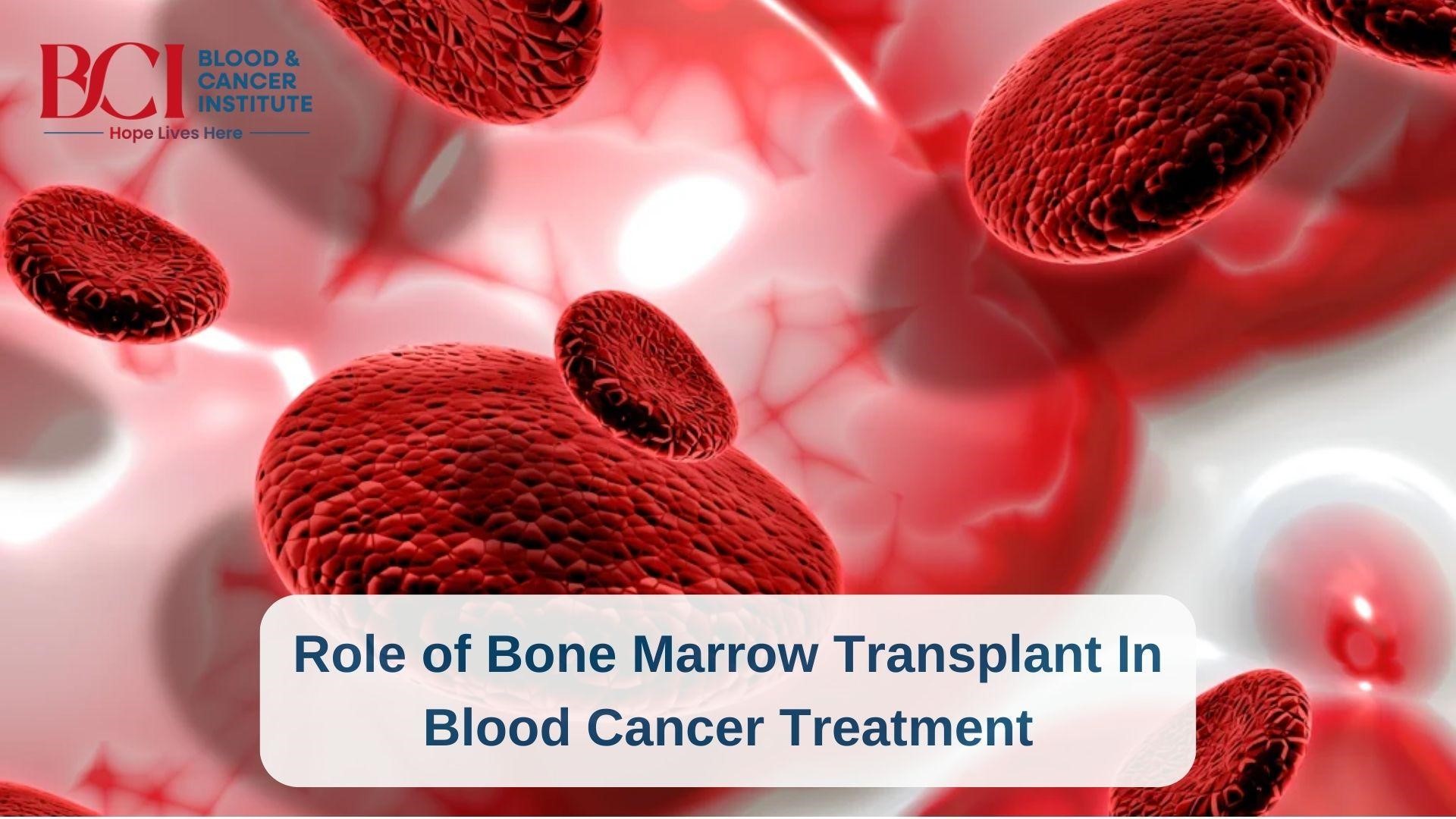
- By : BCI
- General
- Comments: 0
The Role of Bone Marrow Transplant in Blood Cancer Treatment Explained By The Blood Cancer Specialist In Surat
Blood cancers, such as leukaemia, lymphoma, and multiple myeloma, affect thousands of people each year. These diseases disrupt the body’s ability to produce healthy blood cells, leading to a range of serious health issues. While various treatment options exist, our cancer specialists in Surat at BCI- Blood and Cancer Institute, have been using bone marrow transplant (BMT) as a powerful weapon in the fight against blood cancers. This blog post explores the crucial role of bone marrow transplant in blood cancer treatment, its process, benefits, and challenges.
Understanding Bone Marrow and Blood Cancer
Before delving into the transplant process, it’s essential to understand what bone marrow is and how it relates to blood cancer. Bone marrow is the spongy tissue inside our bones responsible for producing blood cells. In blood cancers, this process is disrupted, leading to the overproduction of abnormal cells or the underproduction of healthy cells.
What is a Bone Marrow Transplant?
A bone marrow transplant, also known as a stem cell transplant, is a procedure that replaces damaged or diseased bone marrow with healthy stem cells. These new stem cells can then produce healthy blood cells, effectively “resetting” the patient’s blood and immune system.
Types of Bone Marrow Transplants
Cancer specialists in Surat explain the two main types of bone marrow transplants:
1. Autologous Transplant: The patient receives their own stem cells, which are collected and stored before high-dose chemotherapy or radiation treatment.
2. Allogeneic Transplant: The patient receives stem cells from a donor, either a family member or an unrelated individual with matching tissue type.
The Bone Marrow Transplant Process
The BMT process must be performed at a reputed blood cancer hospital in Surat and typically involves several steps:
1. Preparation: The patient undergoes tests to assess their health and determine the best treatment plan.
2. Conditioning: High-dose chemotherapy and/or radiation therapy is administered to destroy cancer cells and prepare the body for the new stem cells.
3. Stem Cell Collection: Stem cells are collected from the patient (autologous) or a donor (allogeneic).
4. Transplantation: The collected stem cells are infused into the patient’s bloodstream.
5. Engraftment: The transplanted stem cells begin to produce new, healthy blood cells.
6. Recovery and Follow-up: The patient is closely monitored for complications and undergoes regular check-ups.
Benefits of Bone Marrow Transplant in Blood Cancer Treatment
Bone marrow transplant offers several significant benefits in the treatment of blood cancers, share some of the best hemato-oncologists in Surat:
1. Potential for Cure: For some patients, BMT can lead to long-term remission or even cure of their blood cancer.
2. Higher Dose Treatments: BMT allows for the use of higher doses of chemotherapy or radiation, which can be more effective in eliminating cancer cells.
3. Immune System Reset: In allogeneic transplants, the donor’s immune system can help fight any remaining cancer cells, a phenomenon known as the graft-versus-tumour effect.
4. Treatment for Relapsed Cancers: BMT can be an effective option for patients whose cancer has returned after initial treatment.
5. Improved Quality of Life: Successful transplants can lead to significant improvements in patients’ overall health and quality of life.
Challenges and Risks
While bone marrow transplant can be a life-saving procedure, it’s not without risks and challenges:
1. Graft-versus-Host Disease: In allogeneic transplants, the donor’s immune cells may attack the patient’s healthy tissues.
2. Infections: Patients are at high risk of infections during and after the transplant due to a weakened immune system.
3. Organ Damage: The high-dose treatments used in preparation for BMT can potentially damage organs.
4. Graft Failure: There’s a risk that the transplanted stem cells may not engraft properly.
5. Emotional and Psychological Impact: The lengthy and intense treatment process can be emotionally challenging for patients and their families.
Conclusion
Bone marrow transplant plays a crucial role as part of leukaemia treatment in Surat, offering hope to many patients who may have limited treatment options. While it comes with significant challenges, the potential benefits often outweigh the risks for many individuals. As research continues and techniques improve, bone marrow transplantation is likely to become an even more effective and widely used treatment for blood cancers.
For patients undergoing blood cancer treatment in Surat, it’s essential to discuss all options, including bone marrow transplant, with their healthcare team. Each case is unique, and the decision to undergo a transplant should be made based on individual circumstances, considering factors such as the type and stage of cancer, overall health, and personal preferences.
